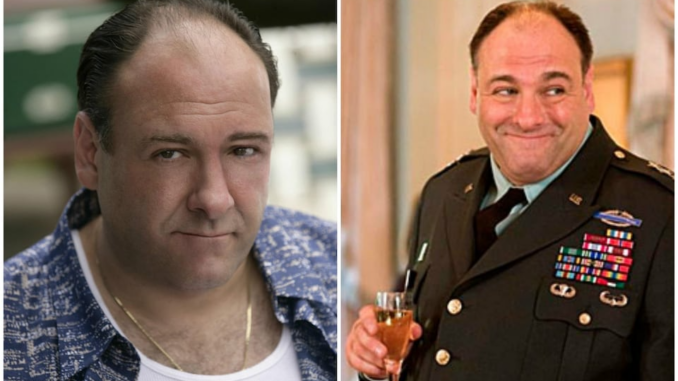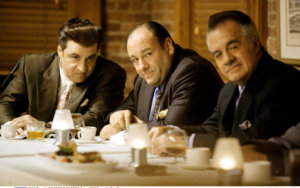
The Sopranos: A Television Revolution We Couldn’t Refuse
There are few television shows in history that have had the cultural impact of The Sopranos. The groundbreaking HBO series, which first aired in 1999, is widely regarded as one of the most important television programs ever made. From its complex characters to its bold storytelling choices, The Sopranos redefined what TV could be, and set a precedent for the Golden Age of Television that followed. But what made The Sopranos such a monumental series? Why couldn’t we refuse the TV revolution it sparked?
In this article, we’re going to dive deep into the lasting impact of The Sopranos, exploring how it transformed the television landscape. Buckle up for a deep dive into this television masterpiece!
The Birth of a TV Revolution
Before The Sopranos, television was largely dominated by sitcoms, procedural dramas, and family shows. While there were some brilliant TV shows in the 90s, they often followed predictable formulas. Then came The Sopranos. It was bold, gritty, and unapologetically complex. It didn’t just tell a story – it completely redefined the medium.
A New Kind of Antihero: Tony Soprano’s Complex Legacy
At the heart of the series was Tony Soprano (played by James Gandolfini), a mob boss struggling to balance his criminal empire with his personal life. Unlike traditional villains or heroic protagonists, Tony was an antihero – a deeply flawed character with both redeeming qualities and disturbing tendencies. This shift in focus from simple good vs. evil to exploring moral ambiguity is one of the reasons The Sopranos felt so fresh and captivating.
Tony’s Psychological Struggles: A Character Study Like No Other
What set The Sopranos apart was its psychological depth. Tony’s therapy sessions with Dr. Melfi (Lorraine Bracco) opened the door to explore themes of mental health, family dynamics, and identity in ways that hadn’t been done on television before. Audiences were used to seeing mobsters as larger-than-life figures, but Tony humanized them. His struggles with anxiety, depression, and his own sense of morality made him relatable, even though his actions were far from justifiable.

The Golden Age of TV: How ‘The Sopranos’ Paved the Way
By the time The Sopranos wrapped up its groundbreaking six-season run in 2007, it had ushered in a new era of television. The show’s success helped launch a wave of high-quality TV shows that would go on to redefine storytelling in the medium. Shows like Breaking Bad, Mad Men, The Wire, and Game of Thrones owe a huge debt to The Sopranos. It raised the bar for writing, acting, and production value in television, showing that TV could rival film in terms of quality.
The Rise of Complex Storytelling and Long-Form Narratives
Before The Sopranos, most TV shows were episodic, meaning each episode told a self-contained story. But The Sopranos took a different approach, utilizing long-form storytelling that allowed its characters and plots to evolve over time. The intricate story arcs across seasons gave the show a cinematic quality, and audiences could now follow deeply nuanced characters through multiple seasons, much like a movie trilogy.
Breaking Away from Traditional TV Tropes
The show was also unafraid to break TV conventions. Instead of neatly wrapping up every plotline, The Sopranos often left audiences with open-ended questions or unresolved conflicts. It was willing to take risks in storytelling, which in turn made it a pioneer for shows that would come after it.
Exploring the Themes: Family, Power, and the American Dream
While The Sopranos was often focused on violence and the criminal world, it was also a show about family, power, and the American Dream. The struggles within the Soprano family mirrored the tension between personal desires and societal expectations, reflecting a broader commentary on American life.
The Family Dynamic: The Heart of the Show
At its core, The Sopranos was a family drama. The tension between Tony and his wife Carmela (Edie Falco), his relationship with his children, and the issues surrounding his mother Livia (Nancy Marchand) provided some of the most emotionally charged moments in the series. Family isn’t just a theme; it’s the pulse that drives the show forward. It’s not just about loyalty and betrayal in the mafia world but in the family as well.
Power Struggles in the Mafia and Beyond
Of course, the show also delved into the power dynamics of the mafia. Tony’s role as a boss wasn’t just about maintaining control over his criminal empire; it was about navigating the tricky world of alliances, rivalries, and backstabbing. But The Sopranos took things a step further, exploring how power affects every aspect of Tony’s life, from his family to his friendships to his business dealings.
Cinematic Quality: A New Standard for TV Production
One of the most notable aspects of The Sopranos was its production value. The show looked and felt like a movie. The camera work, lighting, and set design all contributed to creating a world that was visually stunning and immersive. The use of symbolism in the visuals, especially in Tony’s dreams, added another layer of depth to the storytelling, making each scene feel purposeful and loaded with meaning.
Soundtrack: A Music Selection That Defined a Generation
The show’s soundtrack also played a significant role in defining its tone and atmosphere. From classic rock to soulful ballads, the music in The Sopranos was carefully chosen to reflect the characters’ emotional states and the themes of the show. Tracks like “Woke Up This Morning” by Alabama 3 and “The Ride of the Valkyries” became iconic in their own right, creating unforgettable moments in TV history.
Cultural Impact: A Show That Went Beyond the Screen
The Sopranos didn’t just change television – it changed popular culture. It influenced everything from music to fashion, and its legacy can still be seen in today’s media landscape. Tony Soprano became an iconic figure, and the show’s catchphrases, characters, and themes are still referenced in modern TV and film.
The Sopranos and the Rise of Prestige TV
The success of The Sopranos proved that high-quality television could thrive on cable networks. It helped launch what is now known as the era of “prestige TV” – a time when television shows became as complex and sophisticated as feature films. This paved the way for creators to experiment with darker, more nuanced themes in a way that hadn’t been possible before.
The End of an Era: The Sopranos Finale and Its Lasting Impact
The final episode of The Sopranos is one of the most talked-about TV moments of all time. The ambiguous ending left viewers debating Tony’s fate for years, showcasing the show’s ability to leave a lasting impression and spark conversation. Whether you loved it or hated it, the finale was a fitting end to a show that was never afraid to challenge its audience.
Conclusion: The Sopranos – A Legacy We Couldn’t Refuse
Looking back, it’s clear that The Sopranos wasn’t just a television show – it was a cultural phenomenon that forever changed the way we watch TV. Its influence can still be felt today, in every antihero-driven drama and every show that dares to tackle difficult, complex themes. In a world full of instant gratification, The Sopranos made us slow down, think critically, and invest in characters who were as flawed as they were fascinating.
FAQs
1. Why was The Sopranos so groundbreaking?
The Sopranos changed television by introducing complex, morally ambiguous characters and long-form storytelling, allowing for deeper character development and more sophisticated narratives than were previously seen on TV.
2. Who was the most influential character in The Sopranos?
Tony Soprano, played by James Gandolfini, was the most influential character. His complexity as an antihero challenged traditional views of mobsters and became a defining role in modern television.
3. What made The Sopranos stand out from other crime dramas?
Unlike traditional crime dramas, The Sopranos explored Tony’s psychological struggles, family dynamics, and moral dilemmas, blending crime with deep emotional and philosophical themes.
4. How did The Sopranos impact other TV shows?
The Sopranos paved the way for other “prestige TV” shows such as Breaking Bad, Mad Men, and The Wire, influencing how shows are written, produced, and received by audiences.
5. What was the significance of The Sopranos ending?
The ambiguous ending of The Sopranos sparked endless debates and became a